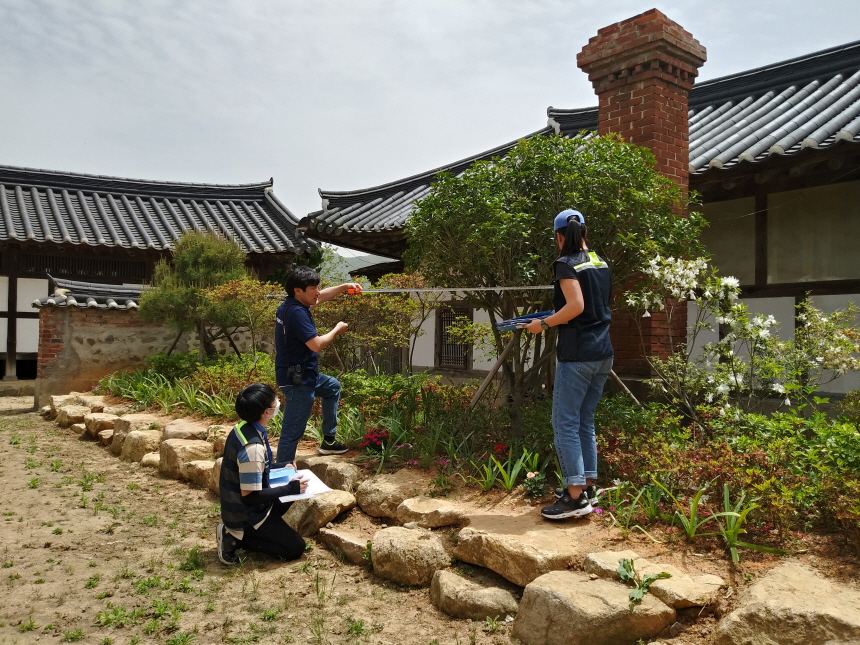The National Research Institute of Cultural Heritage (hereinafter NRICH) and Korea Forest Service (hereinafter KFS) signed a business agreement from 2019 and conducted joint investigations to discover, restore, preserve, and revitalize Korean traditional gardens, utilizing the expertise of both institutions. Until now, studies on cultural heritage private houses have been mainly focused on buildings, so studies on gardens attached to private houses have not been largely conducted, and folk house garden, which has not been registered as a cultural property, has not been subject to research or management. As the need for the records of folk house garden continues to be raised, the two organizations have joined forces to investigate and research the existing private home gardens. For the past two years, NRICH and KFS have conducted three-dimensional investigations and research by demonstrating traditional landscaping research techniques such as traditional spatial composition and construction history, value discovery, and horticultural expertise such as tree species identification and restoration, and planting composition, respectively. Accordingly, through document and field surveys, planting records and analysis, and owner interviews, 24 traditional private house gardens with well-preserved characteristics of the Joseon Dynasty were found. This survey will sequentially investigate and excavate private home gardens in Korea, following 12 locations in Gyeongsang-do (2019) and 12 locations in Jeolla-do (2020).
NRICH and KFS endeavor to become a prominent research center that supplements the empty spots of Korean garden history from the Joseon Dynasty to the modern era, and distribute the guideline for planting management for folk house garden, while systematically managing gardens to highlight the value as a cultural property, designation of it will also be promoted. They plans to hold a online exhibition using 3D scans of the private house gardens and 360-degree virtual reality records.

View of investigation for Korean traditional gardens
Image courtesy of National Research Institute of Cultural Heritage




